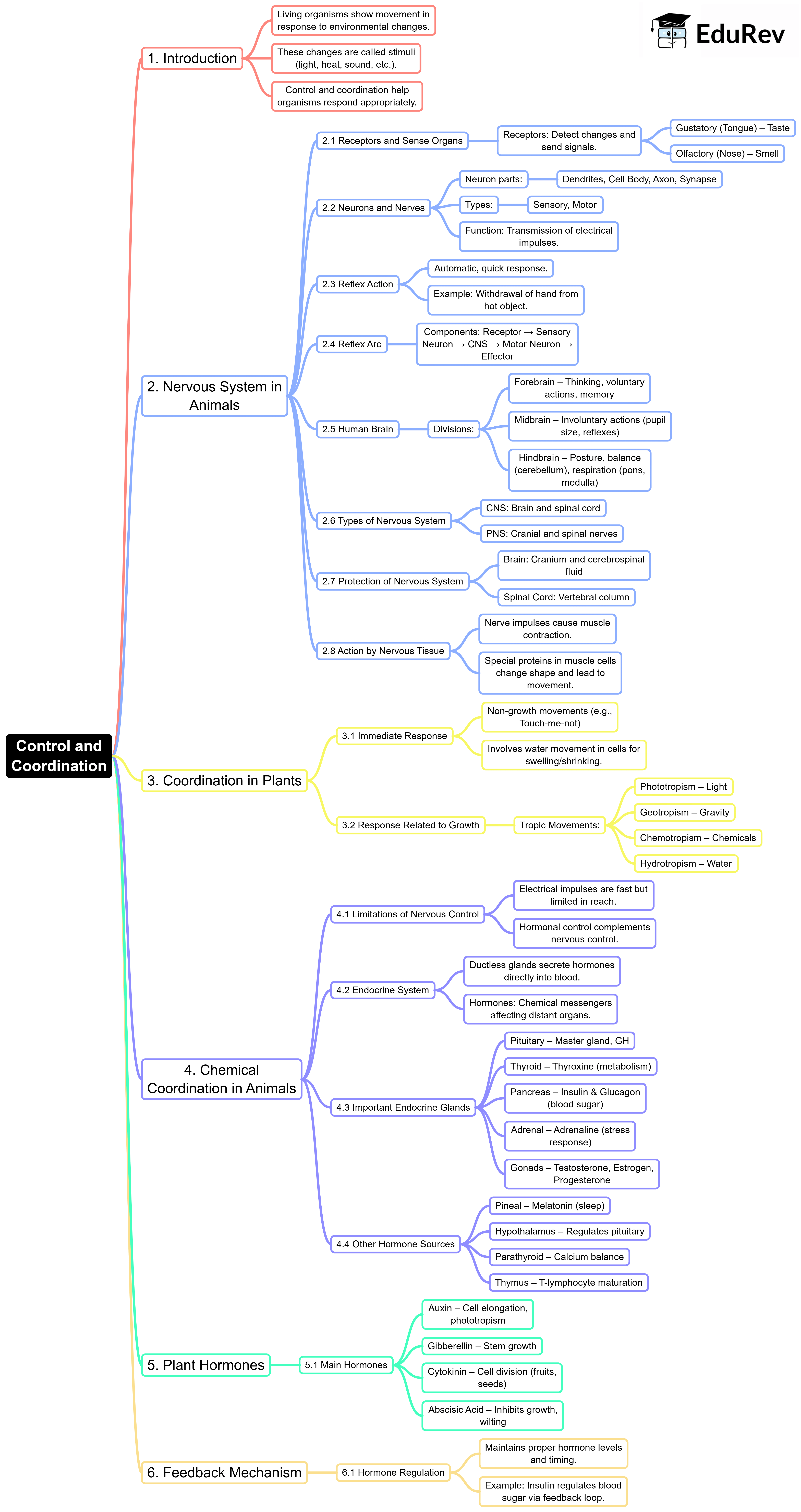Class 10 Exam > Class 10 Notes > Subject-Wise Mind Maps for Class 10 > Mind Map: Control & Coordination
Mind Map: Control & Coordination | Subject-Wise Mind Maps for Class 10 PDF Download

The document Mind Map: Control & Coordination | Subject-Wise Mind Maps for Class 10 is a part of the Class 10 Course Subject-Wise Mind Maps for Class 10.
All you need of Class 10 at this link: Class 10
FAQs on Mind Map: Control & Coordination - Subject-Wise Mind Maps for Class 10
| 1. What is control and coordination in biology? |  |
Ans. Control and coordination in biology refers to the ability of an organism to regulate and integrate its various physiological processes in order to maintain homeostasis and respond to stimuli. It involves the nervous system and endocrine system working together to control and coordinate the activities of different body parts.
| 2. How does the nervous system control and coordinate the body's functions? |  |
Ans. The nervous system controls and coordinates the body's functions through the transmission of electrical signals called nerve impulses. These impulses travel along specialized cells called neurons, which form a complex network throughout the body. The brain and spinal cord, known as the central nervous system, receive and process information from sensory receptors and send out appropriate signals to effectors, such as muscles and glands, to carry out the desired response.
| 3. What are hormones and how do they contribute to control and coordination? |  |
Ans. Hormones are chemical messengers produced by endocrine glands and released into the bloodstream. They travel to target cells or organs to regulate their activities. Hormones contribute to control and coordination by coordinating and integrating the functions of different body systems. They help maintain homeostasis by regulating processes such as metabolism, growth, reproduction, and response to stress. Examples of hormones include insulin, adrenaline, and estrogen.
| 4. How do plants exhibit control and coordination? |  |
Ans. Plants exhibit control and coordination through a complex network of cells called the plant's vascular system. This system consists of xylem and phloem, which transport water, nutrients, and hormones throughout the plant. Plant hormones, such as auxins and gibberellins, regulate various processes like growth, flowering, and response to environmental stimuli. Additionally, plants can also exhibit tropisms, where they grow or move in response to specific stimuli, such as light or gravity.
| 5. What are some common disorders related to control and coordination in humans? |  |
Ans. Some common disorders related to control and coordination in humans include Parkinson's disease, Alzheimer's disease, multiple sclerosis, and epilepsy. Parkinson's disease is characterized by the degeneration of certain nerve cells, leading to tremors, stiffness, and difficulty in movement. Alzheimer's disease is a progressive neurodegenerative disorder that affects memory, thinking, and behavior. Multiple sclerosis is an autoimmune disease where the immune system mistakenly attacks the protective covering of nerve fibers, causing communication problems between the brain and the rest of the body. Epilepsy is a neurological disorder characterized by recurrent seizures, resulting from abnormal electrical activity in the brain.
Related Searches

















